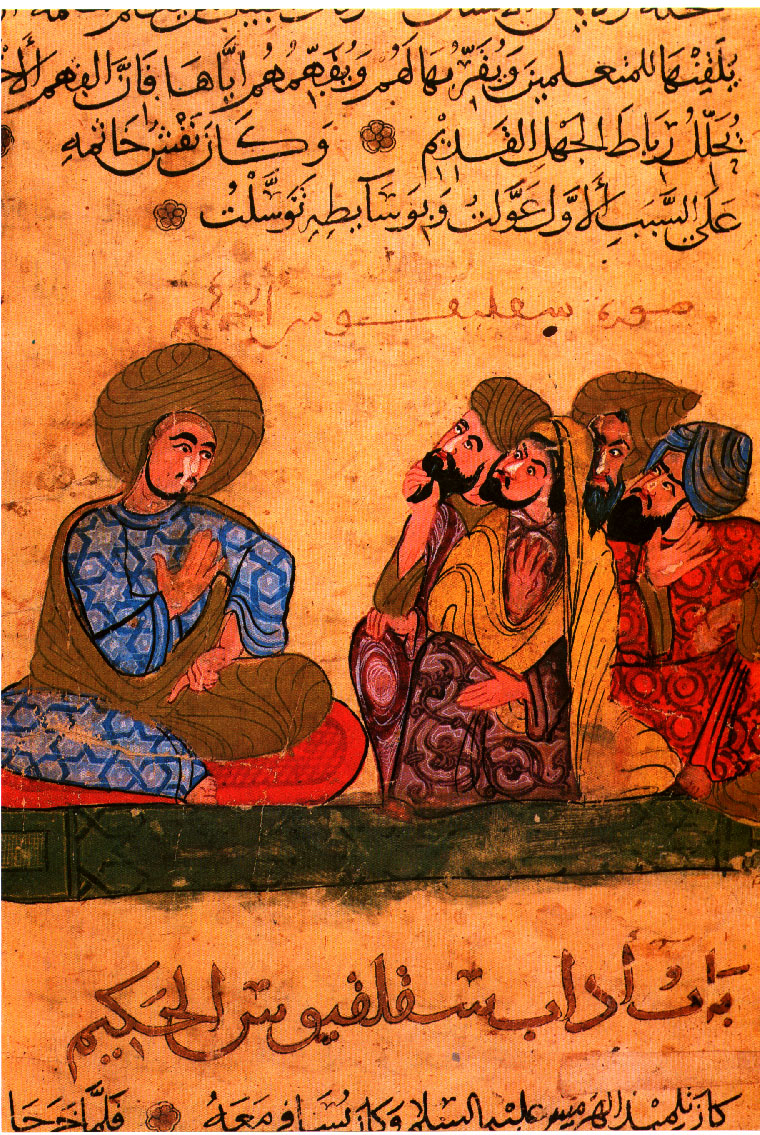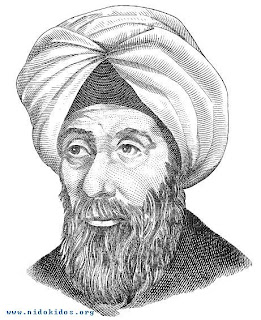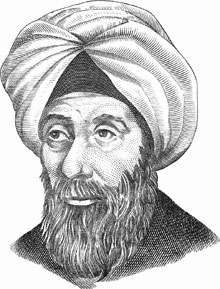Hasan of Basra
Al -Hasan al - Basri, full name Abū Sa ʿ īd al -Hasan ibn Abi l -Hasan al - Basri (Arabic ابو سعيد الحسن بن ابي الحسن البصري, DMG Abū Sa ʿ īd al - Ḥasan ibn Abi l - Ḥasan al - Basri; * 642 in Medina; † 728 in Basra ), was a Muslim Quran scholar and preacher who played an important role in the canonization of the Qur'an text as well as in Islamic debates on predestination ( qadar ). Due to the great authority he possessed a rich literature pseudepigraphisches later developed around his person. Both Mu ʿ taziliten and Sunnis took him as representative of the own direction to complete. In Sufi circles enjoyed al - Hasan al- Basri early high reputation. Several orders received him in their silsila.
Life
Al -Hasan was the son of a Persian slave who had been brought to Medina during the wars of conquest. After the Battle of Siffin, he settled in Basra, where he was universally esteemed for his learning and piety. In his younger years, 663-666, he participated in several conquests of Muslim troops in Iran. He was a political opponent of the second Umayyad Yazid I ( 680-683 ), during whose reign the second civil war ( fitna ) all of Iraq, Syria and Hejaz detected.
Al -Hasan looked arbitrariness and injustice of the government as the expression of God's will, against whom one is not allowed to rise ( taghyir al - ma'asi تغيير المعاصي / taġyīru ʾ l -ma ʿ ASI), but these have to endure with patience. At the same time he said the sinner from the right to claim that God is the creator of all actions of man; rather the sinner for his actions was responsible.
His contribution to the Arabic prose of his time must have been enormous, as his sayings to piety in later prose writings and anthology collections, eg at al - Mubarrad be cited eagerly by posterity: اجعل الدنيا كالقنطرة تجوز عليها ولا تعمرها / iǧ ʿ ali ʾ d- dunya ka- ʾ l - qanṭarati taǧūzu ʿ alayhā wa - lā ta ʿ muru - hā / Mach from the world a kind of bridge, which you pass, they are building but not '.
Al -Hasan had numerous pupils; among them were the two founders of the Mu ʿ ibn ʿ Ata Wasil tazila ʾ and ʿ Amr ibn ʿ Ubayd.
Al -Hasan as a Qur'an reader and exegete
Al -Hasan was also a recognized authority in the field of sciences of the Qur'an and acted in a managerial role to that of al - Hajjaj ibn Yūsuf project to the canonization of the Qur'an text. His reading variations on the Koran text have survived in the later Qira'at plants, especially in the dedicated to him Mufrada of Abū ʿ Alī al -Hasan ibn ʿ Alī al - Ahwazi (d. 1054/55 ). In some cases, show al - Hasan's reading variants variations in consonant skeleton of the individual words against the uthmanischen text. To read al -Hasan, for example, in Sura 12:110 ʾ ba su -hu ( بأسه ) instead of ba -na ʾ su ( بأسنا ). At other points, the order of the words is different with him from over the uthmanischen text. Such deviations explained by the fact that its readings are in the tradition of local authoritative reading of Basra, which was based on the Quran Code of Abū Mūsā al - Ash ʿ arī.
In other cases, its read variants related only to diacritics. It is reported that he. Sura 2:259 nunšizu - hā ( ننشزها ) instead nunširu - hā ( ننشرها ) read Later, however, he moved away from this reading and joined the majority reading with rā ʾ. Omar Hamdan thought that this was part of the introduction of diacritical marks in the text of the Koran in the wake of al - Haddschādschs Kanonisierungsprojekt. In some cases, the readings of al - Hasan can recognize certain doctrinal positions. So he opted for a reading at two locations (Surah 5:85 and Surah 48:18 ), the ( Itaba ) emphasizes the reward of actions. In Sura 12:110 " So when the messengers finally gave up hope and thought that they had been lied to ( kuḏibū ) [ or been declared liar ( kuḏḏibū ) ], our help came to them " were the two readings of the liabilities for which al -Hasan decided necessary to secure the notion of infallibility ( isma ʿ ) of the prophets. An asset- reading of the verb kaḏabū ( " they lied " ) would have opened the interpretation that the prophets thought of themselves that they had lied, which was not compatible with the asserts itself in this time idea of prophethood. In several places the Qur'an also two or more variants of reading al -Hasan have been handed to a word.
The earliest in its original form still surviving work in which the interpretations of al -Hasan al - Basri was taken into account consistently with the Koran, is the Kitaab at- Tafseer of the Egyptian scholar Abd Allah ibn Wahb († 817 ), which is already in 2nd Century d Hijra ( 8th century AD) was handed down in writing.
From al -Hasan al - Basri also teaching views on abrogation of Quranic verses have been handed down. He is said to have taught, for example, that the pronounced in Sura 2:144 prompted to align themselves in prayer after Holy place of worship in Mecca, to be allowed to pray given in Sura 2:115 permission in all directions, have removed and that have the verses of the compulsory inheritance, (Sura 4:11, 12, 176) the commandment, for the benefit of parents and relatives to make a testamentary disposition (Sura 2:180 ) was abrogated.
The question of his membership in the Qadarīya
Controversy has always been the question of al - Hasan's membership in the Qadarīya. While it appears in the Imami author al - Kaschschī (early 10th century ) as " leader of the Qadarīya " (ra ʾ al - īs Qadarīya ), was placed in Sunni circles importance to prove that he was not a Qadarit. Some scholars such as Ibn Qutaiba and at- Tufi admitted that al -Hasan was originally known for Qadar doctrine, but assumed that he had refrained later.
In the Western research al - Hasan al- Basri is attributed to the Qadarites after Hellmut Ritter in 1933 edited a " qadaritisches " missive from him, al -Hasan allegedly wrote at the request of the Umayyad caliph ʿ Abd al -Malik. The authenticity of this epistle has been true in 1981 drawn by Michael Cook in doubt, and today are considered to be refuted, but there are others narrated from al -Hasan statements that show him to be a representative of a doctrine of free will.
Pseudepigraphisches literature
Independent writings al - Hasan have not survived. His contributions to the design of jurisprudence ( fiqh ) have survived in some isolated fragments standing in the hadith literature, the authenticity of which is disputed.
The al -Hasan attributed epistle to ʿ Abd al -Malik, in which he appears as a proponent of qadaritischen doctrine was initially held by Josef van Ess for authentic and dated to the period 694-699. However, as Sulaiman Ali Mourad has shown, it is for the first time in the book " The advantage of the Mu ʿ tazilitentums and the generations of the Mu ʿ taziliten " ( Fadl al -i ʿ tizāl wa - Tabaqat al -mu ʿ tazila ) of the well-known mu ʿ tazilitischen theologian ʿ Abd al - Jabbar ibn Ahmad (d. 1024) cited. Mourad, who has studied the missives content, comes to the conclusion that it has close proximity to the dogmatic position of the zaiditisch -mu ʿ tazilitischen theologian al - Qāsim ibn Ibraaheem ar - Rassi (d. 860), and suspected because of the fact that it in circles who were influenced by his teaching, has emerged. Background for the creation of the work was that the Mu ʿ taziliten were keen to prove al - Hasan's membership in the Qadarīya to therefore take him as guarantor for their doctrine of human free will in claim can.
In another mu ʿ tazilitischen work, the Sharḥ ʿ Uyūn al - Masa ʾ il of the Zaidi theologian al - Haakim al - Dschuschamī (d. 1101), also a letter from al - Hasan to ʿ Umar ibn ʿ Abd al - ʿ Azeez is still quoted, in which he a qadaritische position occupies.
Abū n -Nu ʿ aim al -Isfahani (d. 1038 ) finally narrated by al -Hasan al - Basri an " epistle of renunciation " ( Risalat al- Zuhd ) to ʿ Umar ibn ʿ Abd al - ʿ Azeez, in the al -Hasan Sufi as a representative teachings appears. This letter is also arose later.










